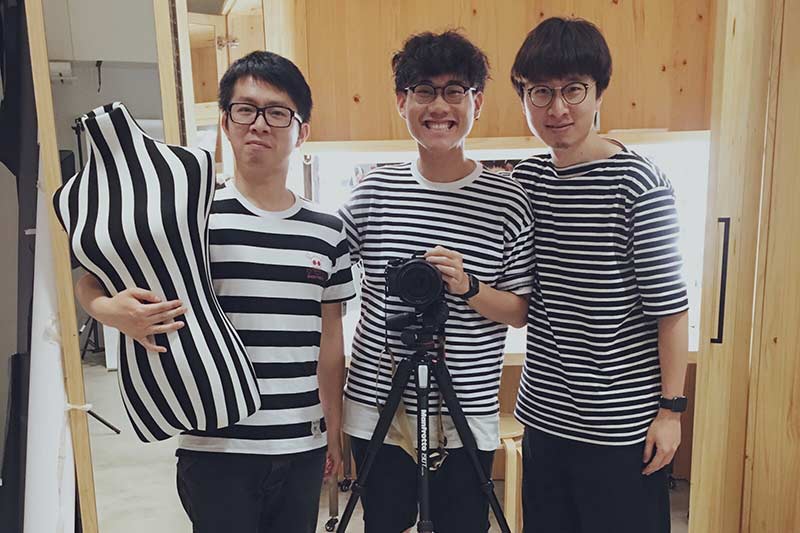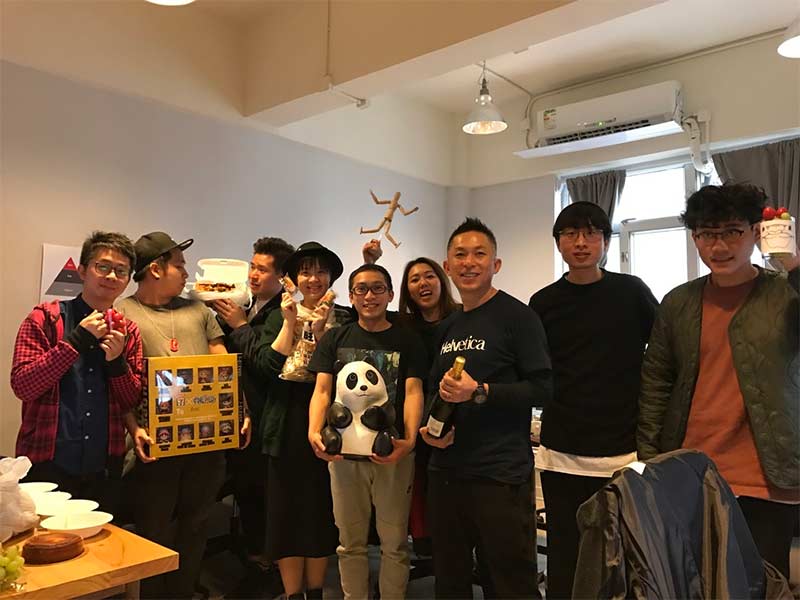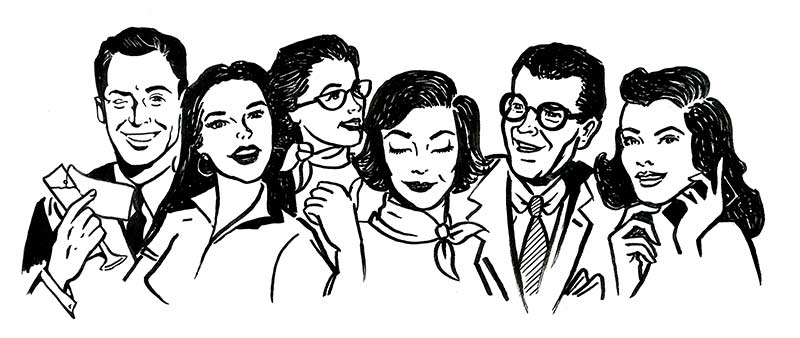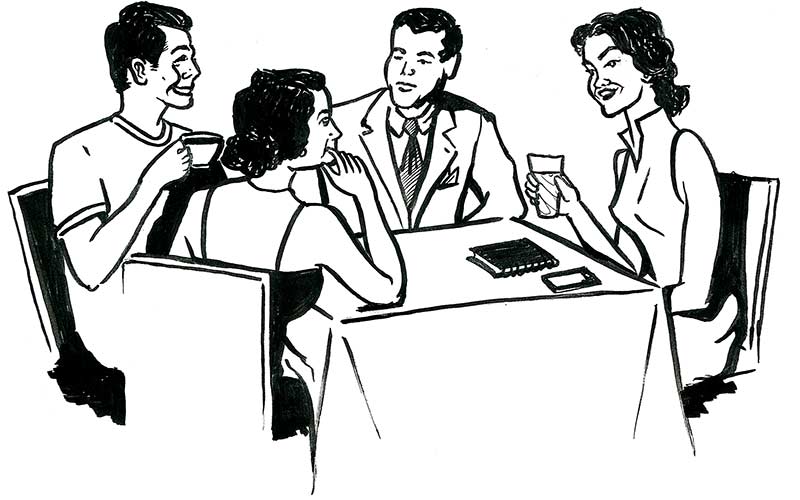In the 26 years Rudi Leung has worked in advertising, he has picked up expertise knowledge along the way before launching Hungry Digital.
Digital Marketing Specialist, Rudi Leung got his first step in advertising in 1991 for Ogilvy & Mather. After 25 years of working for both creative agents and corporate clients in Asia, Rudi decided to launch Hungry Digital; a thriving creative agency in Hong Kong.

Leading a successful creative agency is one thing but getting your employees to work well with one another is challenging. Young creatives can contribute extraordinarily to a company’s success but there’s an underlying issue of creatives being independent-minded who prefer to work alone.
Teamwork within a creative team is not something that happens overnight and it’s certainly not something you can force. However, the thing we’ve noticed about Rudi and his young team, in general, he’s well-respected and everyone has bonded organically- I kid you not.
There are some issues to overcome when working with a young team and that’s where Rudi gets right. We decided to chat Rudi about some invaluable wisdom about management and working with creatives that he’s picked up mingling with a community of innovators at the Hive Sheung Wan.

1. Mentally Mature Yourself
It’s normal to meet childish people in the creative industry who live up to the artiste stereotype. Creatives are the spoilt kids in the jungle; they will yell at colleagues, disrespect clients and fail to show up at work on time. Unfortunately, that’s the culture of the creative industry and how it has been for the past 20 years. However, if you’re a creative person, you need to discipline yourself and force yourself to mature in a short amount of time- that’s how my first job impacted me as a person.
2. Learn to Respect Your Audience and Your Team
Respect Your Audience
It’s important to respect your audience first as we are not in the fine art industry. We are a business, and advertising is just a creative solution to solve a problem.
The most difficult part is persuading the audience to appreciate your work and that’s more important than creativity. In advertising, it’s our job to use visuals or typography to attract consumers into buying your product. This is one of the fundamental principles I go back to and I always ask my team if they have checked the following:
Have I achieved the marketing objective?
Have I helped my clients brand to shine?
Did I use this idea to really help my clients or am I showing off my skills to claim the spotlight?
If someone says, “I wanted to use this image because I like it” to explain why they have chosen a certain image, this is not acceptable. This is not a good reason because you did not think about your customers. However, if the image is suitable for the target audience- that’s a good reason.
Respect Your Team
My team are different from each other but they get along with each other very well because I remind them they need to respect individual differences and that’s how the creativity will flow.
3. Hire Fresh Graduates

There’s always fresh talent looking for advertising jobs every year. However, in the last 10 years, it’s been tougher because of the economy so agencies hire less fresh graduates. However, for the business nature of advertising, we need to hire young people every year because you need fresh minds for new ideas.
4. Let Go of Your Personal Ego
It’s not about you when you run a business. A lot of creatives have the mindset of ‘I’m the greatest so I can do whatever I want.’ However, if you are an artist who doesn’t need to do art for a living, then yes; be my guest. People think it’s their freedom to do anything they like but that is not true.
I encourage my team to “let go of yourself, your personal ego, and your personal agenda.” It’s very tempting as a creative to do what you want so I prohibit this in the office. From time to time, they might give you some attitude but I will remind them to let go of their personal ego as it’s not about what they like to do.
5. The more diversity in a team, the better.
When I hire employees, I have to remind myself to look for people with different personalities to form a strong team. Some of my friends like to hire a particular type (eg. graduates from the same design school) but I prefer a diversity of people with different backgrounds and genders. The more diversity in a team, the better. Even from my client list, you can see how diverse they are.
However, I don’t hire just for their skills, but also for their kindness. It isn’t necessary for my team to have shared interests, but they need to accept differences and to treat everyone like a family. I try to hire people who don’t live in the same districts in Hong Kong, especially those who grew up in tougher areas; I want to give them an opportunity to work.
6. Treat Everyone like Individuals
Some people think you need a particular management style to manage a young team but I don’t. I try not to personally influence my team because I treat them as individuals with their own thoughts.
By giving them a lot of liberty, they have ownership over each project and this helps them to mentally mature as adults. My team has all the final say on which clients Hungry Digital work with and anyone I need to hire.
7. Team Bonding
By creating an environment for the team to exercise physically and mentally, this has helped us bond organically. It’s not just about team building, but you have to do small things like exercising to make teamwork flow organically. For example, the team were reluctant to play badminton at the start. Only 2 girls were interested and then they eventually influenced the team. Through exercising, they get along better.
8. Let Your Team have Some Leadership
I enjoy giving leadership to young people but it doesn’t mean I am a dictator. Young people expect leadership as they are young and they have no idea about things. However, I am lucky because my team are quite keen to not just follow rules blindly, but they also enjoy leadership. You have to point them in some direction. Sometimes they might not listen, but at least as their manager, it’s better to give them direction than none at all.
9. Give A Clear Direction
Most creative directors don’t ‘direct’ as they judge things subjectively. The worst scenario is when the young creative is lost because they don’t know why their ideas were rejected.
Most of the time I give my team very clear directions and they have to find solutions within the guideline given. For new projects, I don’t give too much creative freedom but they can express their creativity within the box- nothing can be free flow. Even with smaller projects, I still have to give some user directions.
10. Never say ‘I don’t want to limit your creativity- you can do whatever.’
I really hate the phrase, ‘I don’t want to limit your creativity, you can do whatever.’ As a client, you must have something in your mind so we can interpret it in the creative language. You might not have a final idea but you should have something in your mind.
My role is to help the clients organise their thoughts because they don’t know how to brief a creative. They try to be kind and give creative freedom but we are in a business world. Creativity is just a solution to help a business achieve objectives and goals.
Related Articles
Nosigner: Sparking Social Innovation with Design







